No inquiry into 1974 IRA Birmingham pub bombings
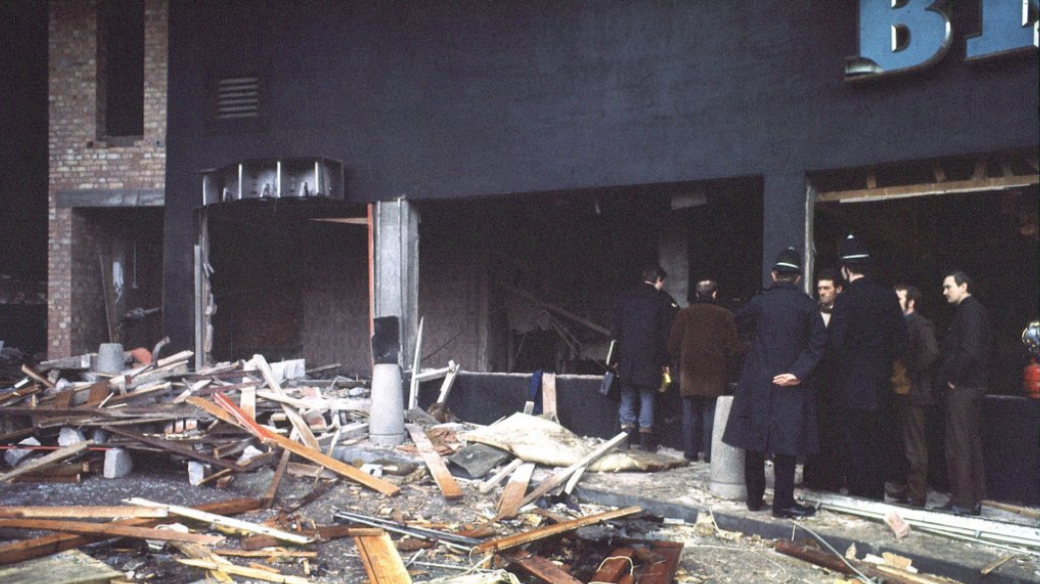
Up to 50 people were in the Mulberry Bush pub on New Street, Birmingham when a bomb exploded on 21 November 1974
- Published
There will not be a public inquiry into the IRA's 1974 Birmingham pub bombings in Birmingham, the government has announced.
Twenty-one people died and 220 were injured when bombs exploded at the Mulberry Bush and The Tavern in the Town pubs, in a case that remains unsolved.
Security minister Dan Jarvis said while he had deep sympathy with the families, "after careful consideration" the government would not commit to an inquiry, because it feels an ongoing independent commission investigation will be effective.
In response Julie Hambleton, whose sister, Maxine, died in the bombings said: "It is as if they are quite literally spitting on the graves of our loved ones."
"As long as there is breath in my body I will fight for justice," she added.
Ms Hambleton had previously said a failure to hold the inquiry would be "the epitome of moral and ethical turpitude", because it would be the only way the truth would finally come out.
The news comes after Prime Minister Sir Keir Starmer, speaking to the BBC during Labour's conference at the end September, said the families of the victims "will never be forgotten".
"It might be that it needs to go into the new legacy arrangements, because they're designed to get to the bottom of all the legacy issues, including the Birmingham pub bombings, so that's the route that this should now take," he said.
'I hear families' case'
Now, just a month later, in a statement, Jarvis has said it was the government's "firm belief" the existing Independent Commission for Reconciliation and Information Recovery (ICRIR) could effectively investigate the atrocity.
The government later confirmed the decision was delegated to Jarvis because of Home Secretary Shabana Mahmood's role as MP for Birmingham Ladywood.
But Mahmood, also speaking at the party conference in September, said she would "very soon" be looking at "the best mechanism" to give families answers.
"What I will assure those families is I absolutely hear their case, I understand what it is they're looking for - they still want answers after all these years - and they have a right to those answers," she told BBC Politics Midlands.
Birmingham pub bombings: What do we know?
- Published30 October
'Pub bombings truth will only come with inquiry'
- Published28 September
The ICRIR is a body established to look into deaths during Northern Ireland's decades-long conflict, known as The Troubles.
However, speaking to BBC Radio WM earlier, Ms Hambleton described the commission as "tantamount to the government literally marking their own homework".
"There is no true independence at all as far as the commission is concerned," she said.
"We have blood that still runs through our city pavements because no answers are being given."
Ms Hambleton set up the Justice for the 21 campaign group to call for a public inquiry, especially in light of similar inquiries into the likes of Grenfell and the Manchester Arena attack, decisions that she said were "quite right" after those tragedies.
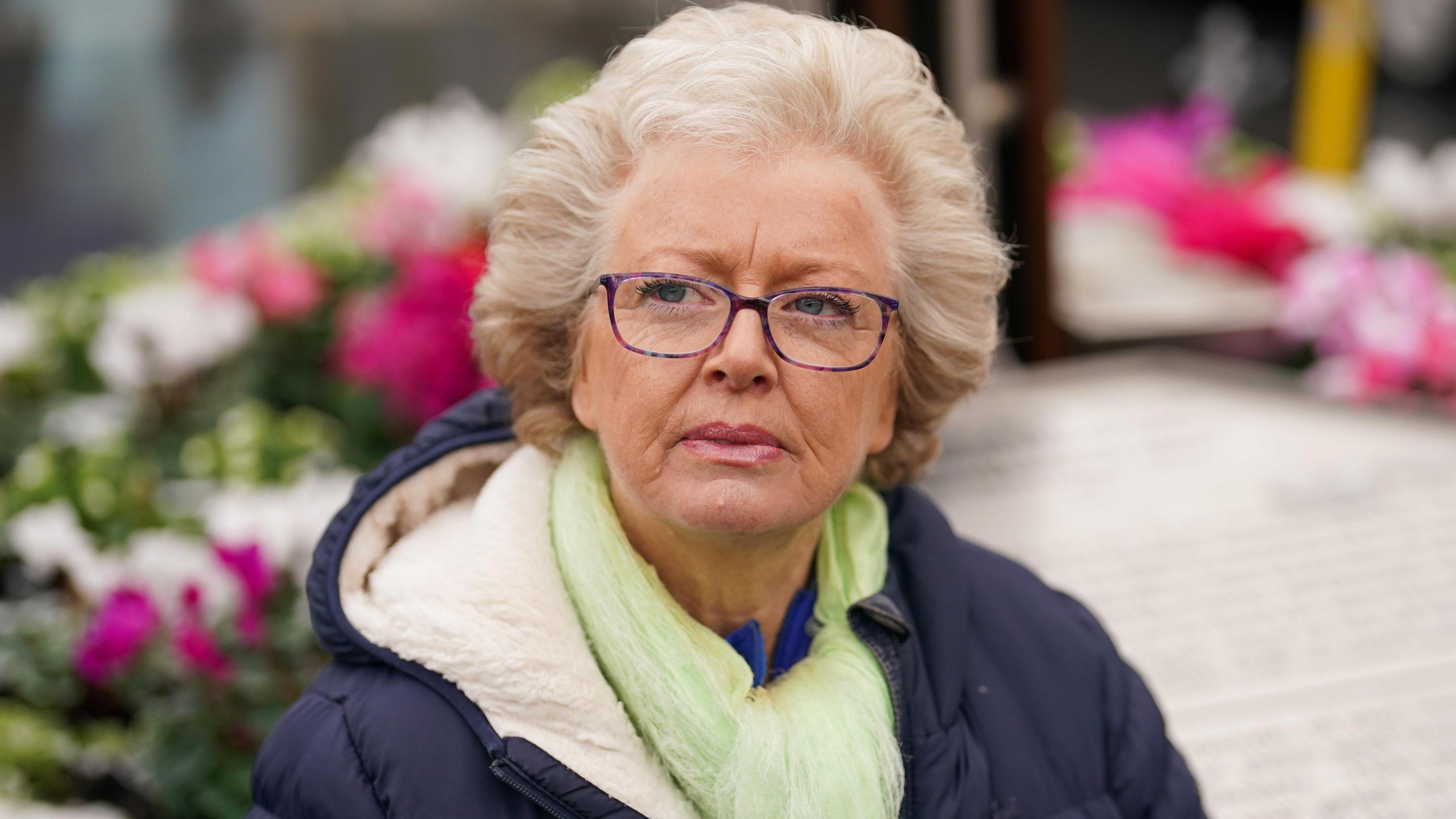
Julie Hambleton criticised the government's decision not to set up a separate inquiry
On the night of the attack, a telephonist at the Birmingham Post and Mail received a call from a man who said two bombs had been planted in the city centre. Minutes later the devices exploded.
Later that evening, five Irish men - Paddy Hill, Johnny Walker, Richard McIlkenny, Gerry Hunter and Billy Power - had left Birmingham by train.
They were stopped by police in Heysham, Morecambe, on their way to catch a ferry to Belfast. A sixth man, Hugh Callaghan, who had seen them off from Birmingham, was also detained.
The group known as the Birmingham Six were initially convicted of the attacks in 1975, and all given life sentences.
However, after 16 years behind bars they were freed in 1991, having been cleared of any involvement.
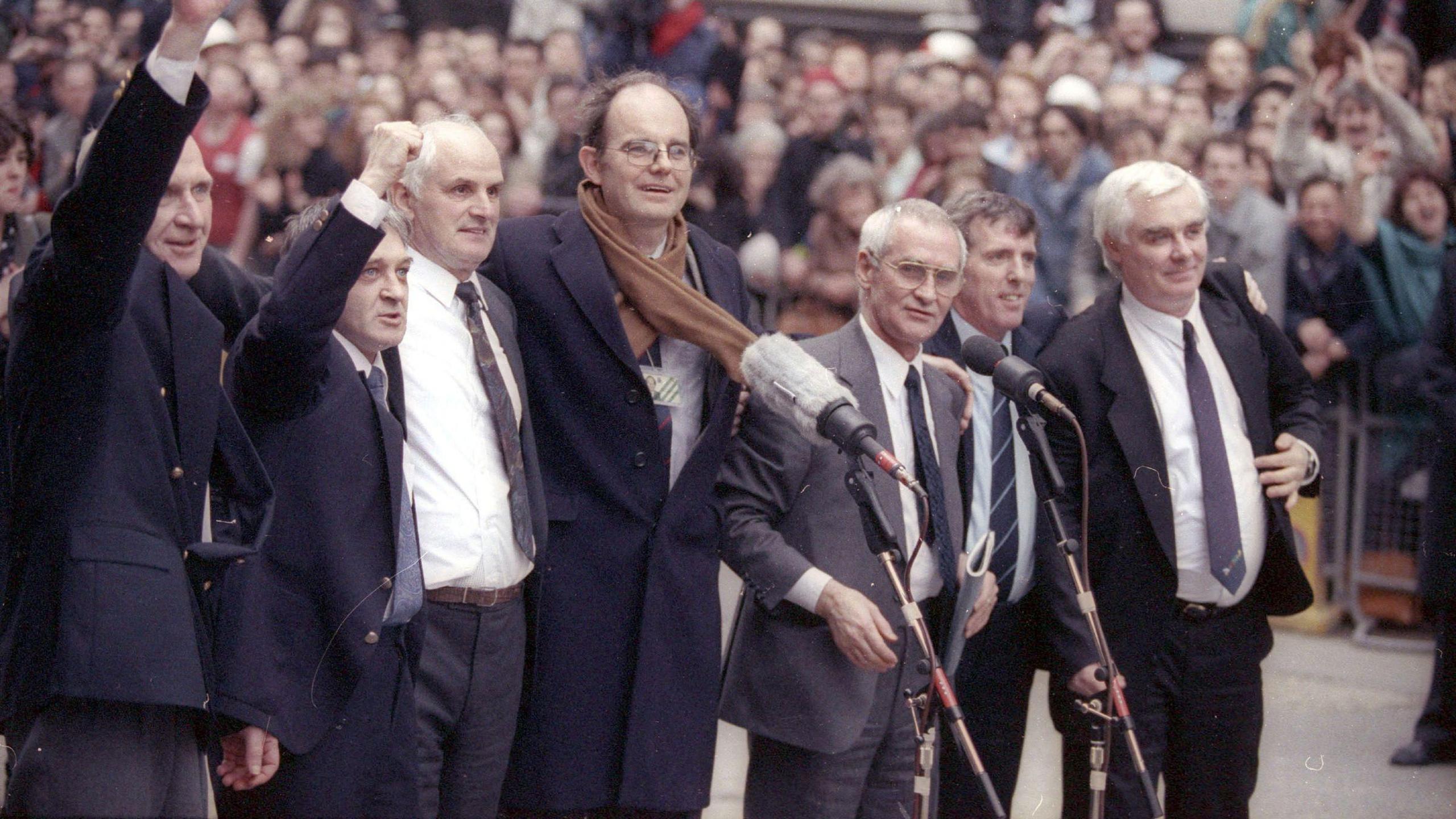
The Birmingham Six were released in 1991, pictured with Labour MP Chris Mullin (centre) who campaigned for their release
While the IRA never officially admitted responsibility, it is widely believed to have been behind the attacks.
Investigative journalist and former MP Chris Mullin, who led a campaign to free the Six, said he had tracked down the real bombers, but did not reveal the names until 2019, when he identified Mick Murray, James Francis Gavin and Michael Hayes.
He withheld a fourth name, which he has still not disclosed.
'Wide range of powers'
An inquest in 2019 ruled the victims were unlawfully killed by the IRA, but did not determine the identities of those responsible.
Jarvis said the ICRIR was created exclusively to investigate Troubles-related cases such as the bombings, and operated independently from the government.
"The commission has been granted a wide range of powers to access information, including from government departments, the police, and the security and intelligence agencies," his statement said.
However, Ms Hambleton said she would not engage with it.
"What they have provided in the letter [setting out the minister's decision] contradicts itself, and it does not and will not serve our case," she explained.
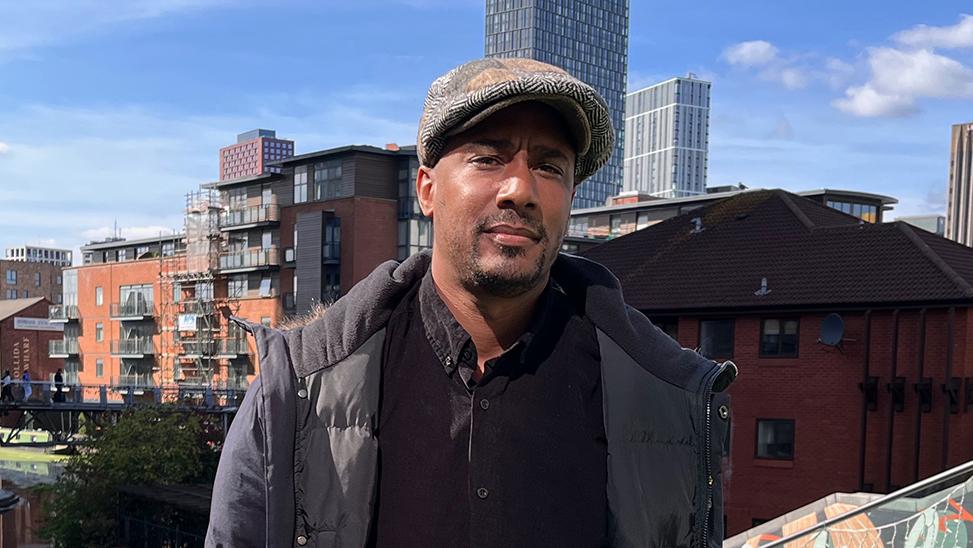
Paul Bridgewater's dad was killed in the Birmingham pub bombings
Paul Bridgewater's father Paul Davies, was killed in the bombings and he previously said his mother "never really got over it".
Responding to the government's decision, Mr Bridgewater said he was "disappointed" but it did not come as a surprise, adding the ICRIR "was an excuse".
"We are not happy," he told WM. "We are going to come together as a group and have a discussion about it.
"We feel that the commission isn't going to get what we want. It's very disappointing. It's not going to stop us. It's just feels a bit flat at the moment."
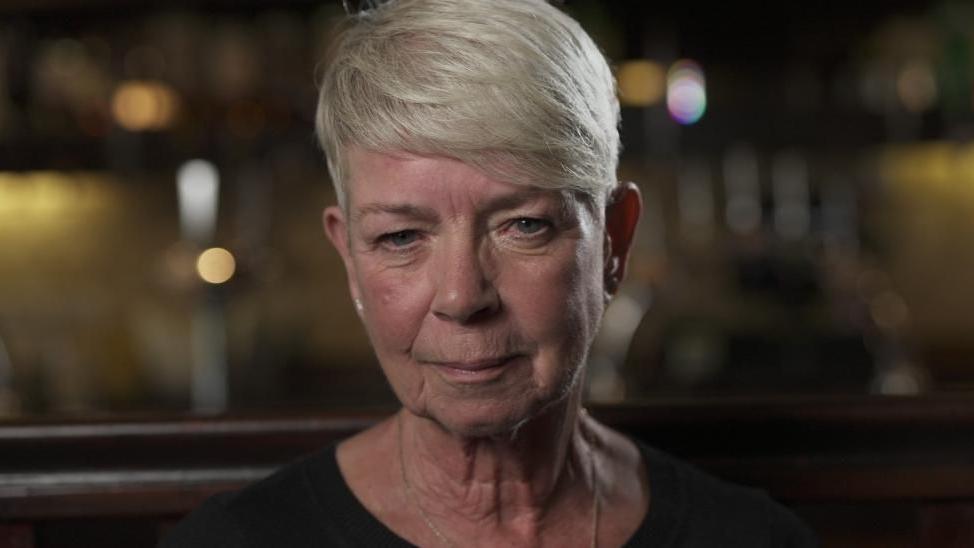
Maureen Mitchell survived the blast at the Mulberry Bush pub
Maureen Mitchell, then aged 21, was injured in the bombing at the Mulberry Bush pub, where she was on a date with her fiancé.
The blast caused shrapnel to puncture her hip, which lodged in her bowel, and her fiancé had to drag her to safety with the help of a security guard.
She told BBC Radio WM the government's decision not to hold an inquiry had come as no real shock to her.
"My heart does go out to the other families, especially with how hard they're fighting for this," she said.
Asked what justice or closure would look like, she said: "I'm not sure because I came to terms with it a long time ago – that we would never see justice or closure.
"There's been many things over the years, these people did it, or that person did it, but there's never been any closure.
"I think, for my own sanity, I've had to come to terms with the fact I'll go to my grave without ever knowing what really happened that night."
'Pain and questions'
In a joint statement, West Midlands mayor Richard Parker and Birmingham City Council leader John Cotton said the government recognised there was still a need for answers.
The pair said they would request a meeting with the security minister and Home Office officials, alongside the families, to discuss the next steps.
"The pain and questions left by the Birmingham pub bombings have never gone away and the families have shown extraordinary dignity in their pursuit of truth," they said.
Parker and Cotton called on the commission to "utilise its full powers" to ensure evidence relating to the bombings and the aftermath is brought to light "so that justice and answers can finally be delivered".
Laurence Turner, Labour MP for Birmingham Northfield, said it was "disappointing" an inquiry had not been granted.
He wrote on X: "The history of the Birmingham pub bombings makes this a special case.
"The survivors and families have been repeatedly let down by public agencies. There is little trust in the state after 50 years of failure to establish the truth."
More on the pub bombings
on BBC Sounds and iPlayer
The BBC looks again at the bombings and the families' 50-year fight for justice
Get in touch
Tell us which stories we should cover in Birmingham and the Black Country
Follow BBC Birmingham on BBC Sounds, Facebook, external, X, external and Instagram, external.
Related topics
- Published15 November 2024
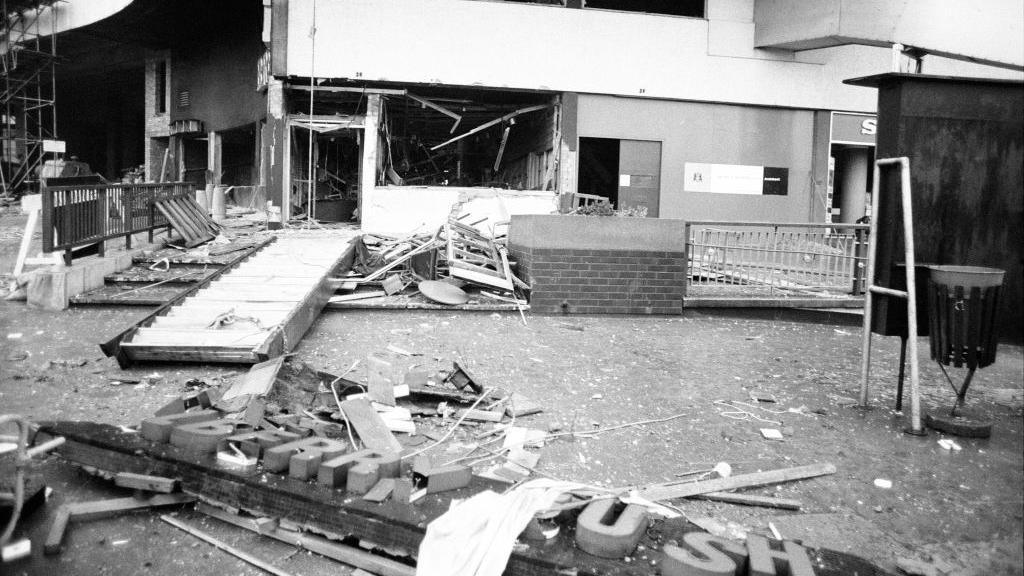
- Published31 December 2024
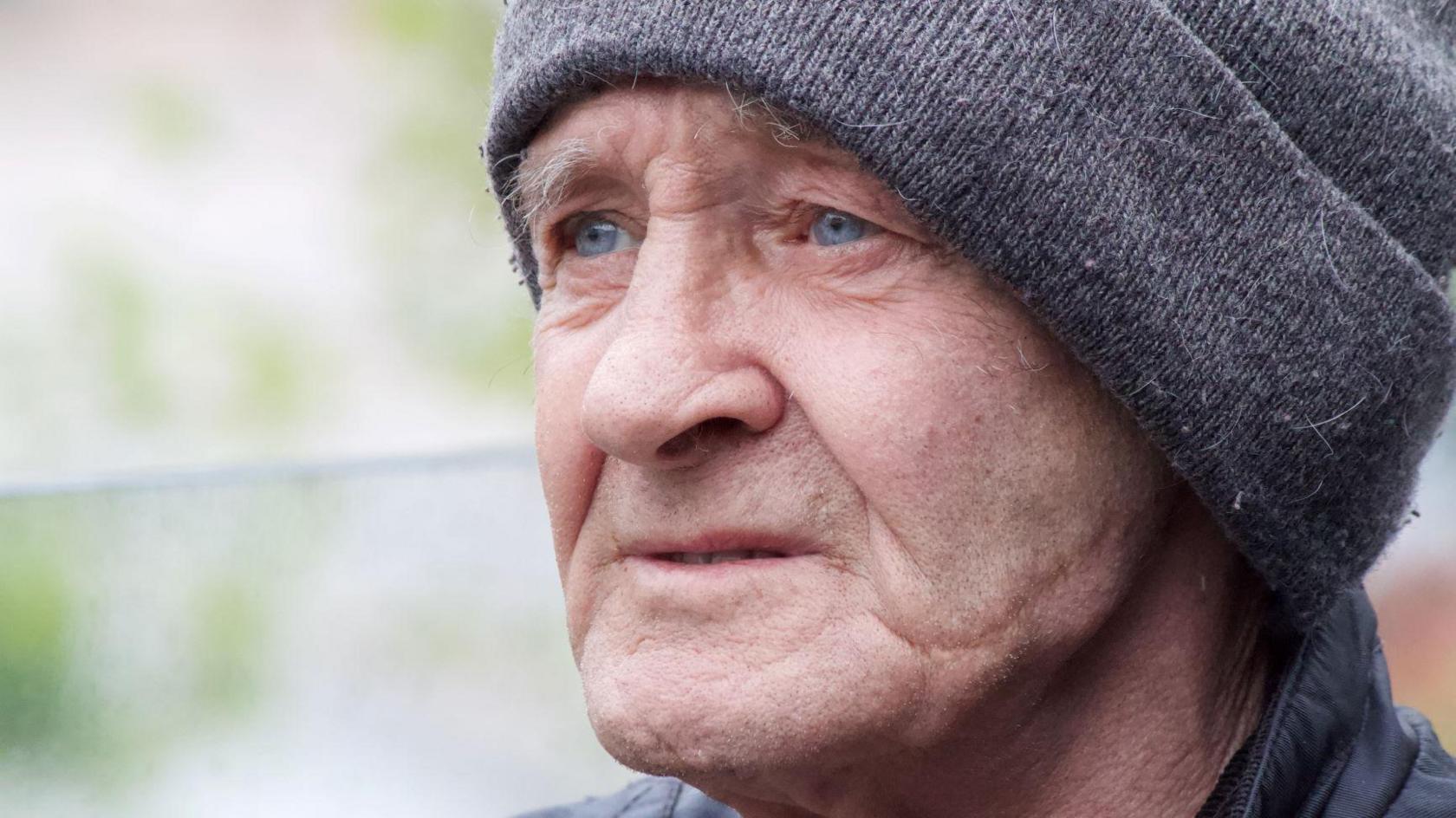
- Published25 September
